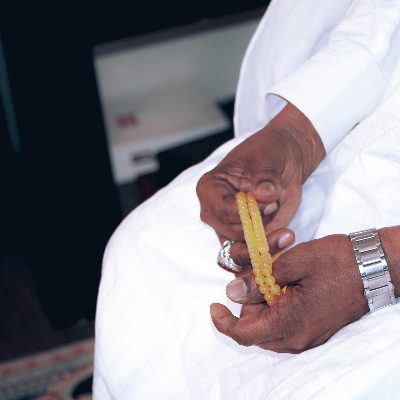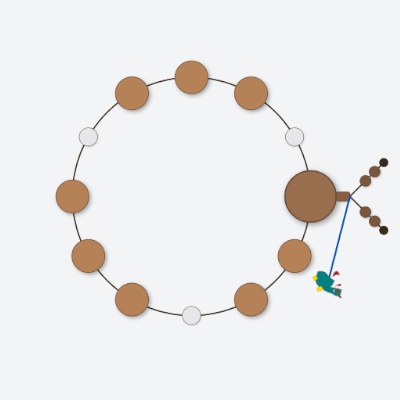In the daily life of Muslims around the world, certain expressions of faith are fundamental. Among the most powerful and commonly mentioned is the Tasbih (also known as Tasbeeh). But what is Tasbih? Is it just the prayer beads many carry, or is it something deeper?

The purpose of this article is to review this core concept in Islam. We will explore the literal translation of its most famous phrase, Subhan Allah, understand its Arabic root, and see how tasbih prayer beads are used as a tool for this beautiful form of remembrance.
The Core Phrase: What is the Meaning of Subhan Allah?
The heart of Tasbih is the Arabic phrase Subhan Allah.
سبحان الله
Often, its literal translation into English is given as "Glory be to God" or "Praise be to Allah." While correct, this simple translation barely scratches the surface of its profound theological meaning.
To truly understand it, we must look at its root word. The first word, Subhan (سبحان), is derived from the Arabic root S-B-H. This root has a sense of movement, like swimming or moving swiftly away from something.
When a person says "Subhan Allah," they are not just offering praise; they are making a powerful declaration. They are proclaiming that Allah (God) is "swimming" or moving infinitely distant from any imperfection.
The Deeper Meaning: Glorification Above All Imperfection
The true usage of Tasbih is glorification. It is an active declaration that Allah is exalted and absolutely free from any fault, weakness, or flaw. It is a statement that God is pure, perfect, and above any negative claim or description.
In Islam, this concept is vital. It is the act of negating any partners one might associate with God, and refuting the descriptions of wrongdoers. When a Muslim says Subhan Allah, they are affirming:
- God has no flaws.
- God has no needs.
- God is far above any comparison to created objects or beings.
This glorification is mentioned throughout the Quran. A powerful verse explains that this praise is not just a human act. The Quran states that the heavens, the earth, the sun, the moon, and everything within them are in a constant state of Tasbih. Their very existence and perfect movement is a constant glorification of their Lord.
The Practice of Tasbih: Dhikr (Remembrance)
Tasbih is a central part of Dhikr, the Islamic practice of remembrance of God. This act of prayer is a way to keep the spirit and heart in constant attention to the divine.
How to Count Tasbih
After completing the formal daily prayers (Salah), it is a common practice for Muslims, often while still in the masjid (mosque), to recite specific phrases. A companion of the Prophet Muhammad taught that Muslims are encouraged to count the following:
- Subhan Allah (Glory be to God) - repeated 33 times.
- Alhamdulillah (All praise is due to God) - repeated 33 times.
- Allahu Akbar (God is the Greatest) - repeated 33 or 34 times.
This number of recitations is a beloved tradition, and to keep count, many Muslims use tasbih prayer beads.
The Tool: What are Tasbih Prayer Beads?
The word Tasbih is often used to refer to the physical tool used for this dhikr: the prayer beads (also known as Misbaha or Subha).
These beads are simply a tool to help a person keep count of the expressions they are reciting, allowing their mind and spirit to focus on the meaning of the words rather than on the number.
Tasbih prayer beads can be made from many materials, but many are crafted from natural objects, such as beautiful wood. Using beads from fragrant or significant wood (like Agarwood or Sandalwood) can add another sensory layer to the remembrance, connecting the user to the beauty of the earth that God created.
A Meaningful Companion for Your Devotion
We can custom-make this Agarwood Tasbih for your spiritual practice. We have crafted this Tasbih from fragrant agarwood, and it offers a calming aroma that enhances focus and mindfulness during your prayers.
Designed for durability and comfort, this tasbih is a meaningful companion for daily devotion and reflection.
- 99 smooth beads for your main prayers.
- 6 additional counting beads for your prayer tracking.
Usage in Daily Life: Beyond Formal Prayer
The phrase Subhan Allah is not reserved just for prayer. It is a versatile and common expression woven into the fabric of daily life.
Muslims will often say "Subhan Allah" spontaneously to express:
- Amazement: When witnessing something of great beauty, like a stunning landscape or a newborn child.
- Shock: When hearing of an unexpected or shocking event.
- Joy: As a pure expression of happiness and joy.
- Correction: When hearing someone say something incorrect about God or faith, it is said gently to correct them.
It is a word that brings the mind back to God in all moments of life, from overwhelming joy to the contemplation of death.
A Universal Concept of Praise
This form of glorification is a universal human instinct. While the Arabic word Tasbih and its specific phrases are central to Islam (and are also found in other languages like Urdu, derived from Arabic), the concept of praise is universal.
For example, Jesus is mentioned in the Gospels as constantly in prayer and glorification of God. The purpose of these practices, across all faiths, is to elevate the human spirit and acknowledge the great glory of the Lord who created all things.
In review, Tasbih is far more than a noun for beads or a verb for praise. It is a complete spiritual practice, a declaration of divine perfection, a tool for focus, and a way of life that finds joy and amazement in the glorified creator of the sun, moon, and earth.




